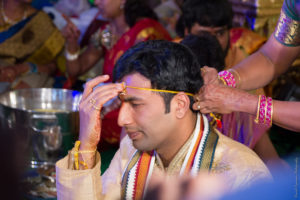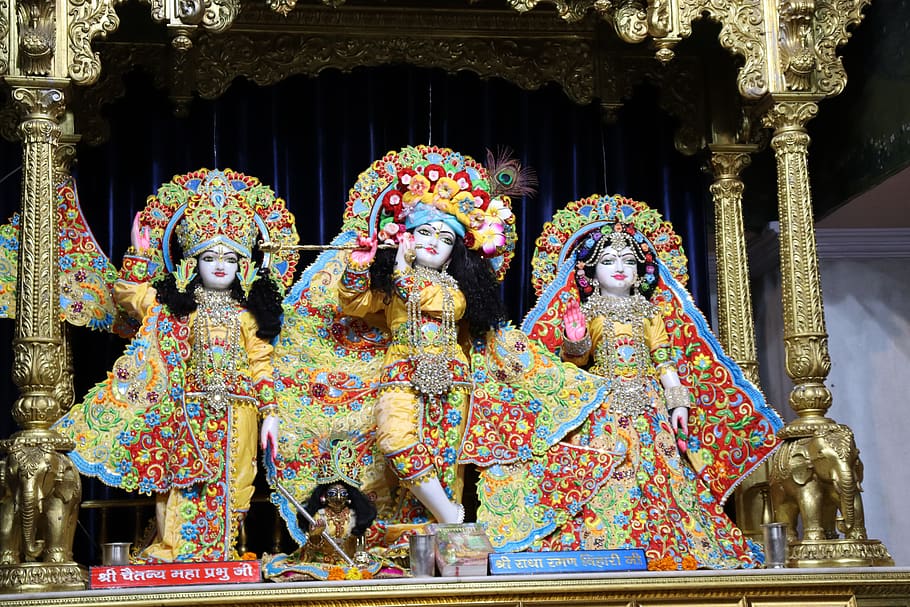I have also heard that Hinduism is losing ground with today’s youth. However, it is not the only thing I have heard about today’s youth.
Perhaps every generation feels threatened that something that it successfully preserved for eternity by way of tradition may not be so well preserved by the new generation. Perhaps all of us feel attached to whatever we did, and perhaps all of us ignore the fact that change is the only thing in this world that does not change.
Meaning of Hinduism
Before we accept a similar judgment about Hinduism, we need to make sure we understand what we mean by the word ‘Hinduism’.
Hinduism refers to ‘Hindu’ which itself is a term derived by the word ‘Sindhu’ meaning river. The area of North India has several rivers around which human civilization developed its first roots in that part of the world. This land was called ‘land of seven rivers’ or ‘Sapta Sindhu’ in Sanskrit and Prakrit language practices during the last few thousand years in North India. ‘Sapta Sindhu’ was called ‘Sindhu’ in short, and foreigners pronounced it ‘Hindu’.
 The word ‘Hindu’ thus refers to India and the people living here. It was often referred to denote the religion of the ‘Hindu’ people. Gradually, as religion as an identity became important, the word became the de-facto term to refer to the religious practices of people of India.
The word ‘Hindu’ thus refers to India and the people living here. It was often referred to denote the religion of the ‘Hindu’ people. Gradually, as religion as an identity became important, the word became the de-facto term to refer to the religious practices of people of India.
Please note when I say, “as religion as an identity became important …” I say so because, in ancient India, the so-called religion was called ‘Sanatan Dharma’ or ‘Eternal duty.’ Interestingly, Dharma’, the word used in Indian languages for what is called ‘religion’ in other parts of the world is not the same as religion. Dharma means duty, and this duty is related to the responsibilities that a person has undertaken in a society. So the duties of a soldier are not the same as the duties of a scholar. Similarly, the duties of a father are different from the duties of the son, though when the son becomes a father, he has to carry out the same duties that his father carried out.
Another manner in which ‘Dharma‘ is very different from the ‘religions’ is that in ancient India, and over the ages, many schools of thought developed and prospered and are still followed. One may not agree with opposite views but they are all respected at the same time. This is very different from most religions where there is only one answer to every question, and other answers are not taken very kindly.
Today’s youth is putting less emphasis on following the dogmas and rigidities imbibed by Hinduism over the ages, and trying to learn and understand much more. Some people even dispute the claim that youth is less religious. I agree with their view, and hence, in my opinion, the youth is not diluting Hinduism. Instead the greater tolerance and openness to different views which they demonstrate amounts to going back to the root philosophy of Hinduism.
Hinduism is not merely a belief and faith in the name of almighty god
It is much more. It is largely a way of life – a set of rules to make sure that human beings in a society can live in harmony while maximizing their individual utility and social welfare. Nowadays, as the family shrinks and people become more individualistic, many of these rules which have survived the scrutiny of time, are no more a matter of religious faith for the young Hindus. So the duty of a father, as well as that of the son, may become somewhat diluted in a society of self-centered individuals, and that is where Hinduism is losing ground.
Globalization means exposure to the practices adopted by different societies
Many of these practices persisting in the Hindu society may have outlived their relevance and are slowly disappearing. This change in some practices and traditions, combined with the adoption of many aspects of Western culture, like a dress, use of English, nuclear families, rising divorces and greater tolerance to extramarital sex may sometimes give the impression that the new generation of Hindus is not so Hindu’ anymore. If the term Hinduism’ in their context refers to ancient Indian culture, this would be largely true. However, if that reference pertains to the so-called religion, it would be far from accurate. The essence of Hinduism as a religion, the concept of duty as well as the openness to different and opposing views of thought, continues to thrive and does not look like being in any real danger.
It is this acceptance of liberty and reason as well as a tolerance of differing views while maintaining that every person needs to perform her duties religiously to obtain a harmonious and productive social order, which as the core of Hinduism, gives it the strength that has stood it during last several thousand. With time, superficialities and appearances will change, as they have done over the centuries, and yet the essence of Hinduism will survive.






